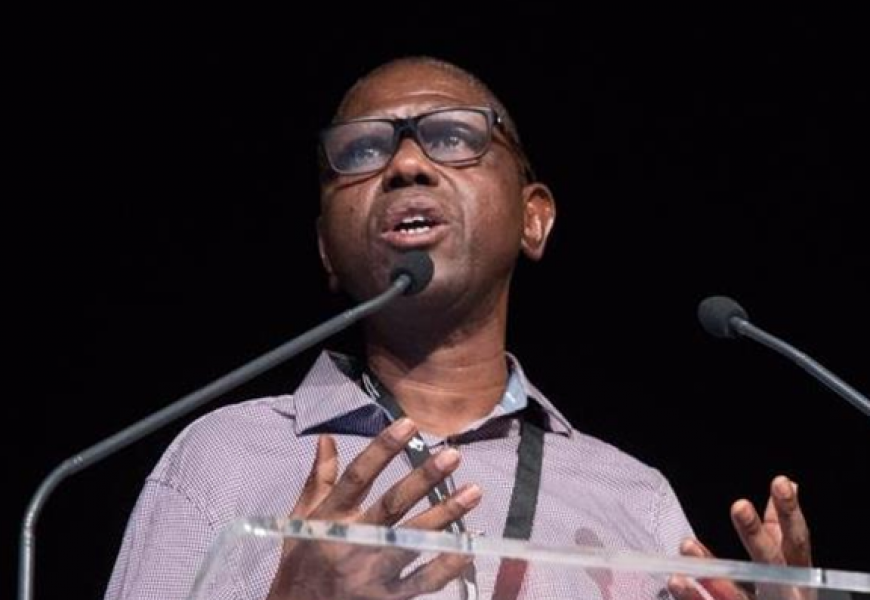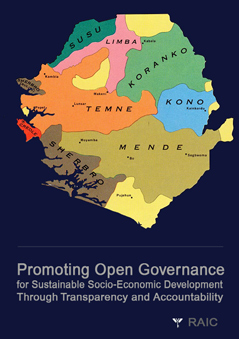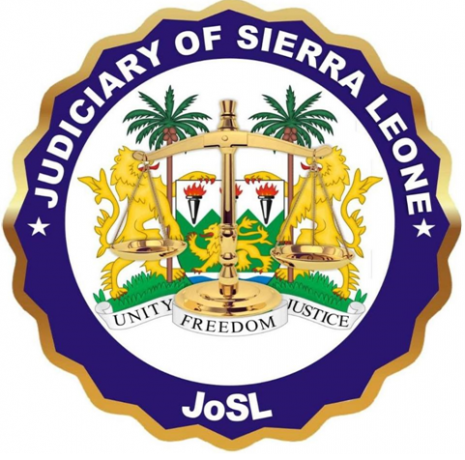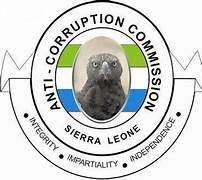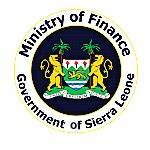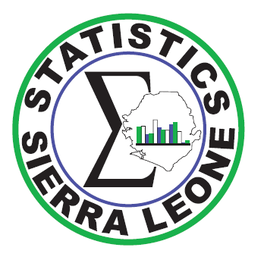The Chairman and Information Commissioner (CIC) of the Right to Access Information Commission (RAIC) Dr Ibrahim Seaga Shaw, was among 15 Information Commissioners elected on to the Interim Executive Committee of the International Conference of Information Commissioners(ICIC) at the organisation’s 11th annual conference held at the Vodaworld Centre in Johannesburg, South Africa, between 10 and 14 March 2019.
his year’s conference on the theme “Building International Cooperation to Strengthen Public Access to Information globally ”, the second to be held in Africa, attracted over 200 delegates from about 50 countries from all the regions of the world.
The International Conference of Information Commissioners (ICIC) is constituted by Information Commissioners and Ombudsmen from across the globe who meet regularly to discuss topical issues related to the protection and promotion of the right to public information for the benefit of citizens.
In the opening plenary, there were speeches from the conference host, Adv Pansy Tlakula, Chairperson of the South Africa Information Regulator, UK Information Commissioner, Elizabeth Denham, as well as the keynote by South African Justice and Correctional Minister, Michael Masutha. The speeches placed emphasis on the fundamental importance of the right to information as the centrepiece of democracy in the promotion of transparency, good governance and the realisation of the right to participatory democracy, freedom of expression and digital rights and freedoms. The importance of access to information as an enabler of other rights, thus ensuring the realisation of all other rights, be they civil, political, socio-economic, or cultural rights, was also emphasized.
 Proactive disclosure of information was described not as a privilege but as an obligation of all public authorities, or institutions, to which the right of access to information applies, including elected representatives and other officials and an imperative for transparency and the development and implementation of a wide range of effective laws and policies, including the attainment of the sustainable development goals. The meeting was appraised by UNESCO’s Director of Freedom of Expression and Media Development, Professor Guy Berger, who gave the keynote address in the first main plenary session, of the need to ensure focused reporting on the right to access information recorded in Sustainable Development Goal 16.10.2. Information Commissioners were identified as key authorities who could play an important role in strengthening reporting on SDG target 16.10.2.
Proactive disclosure of information was described not as a privilege but as an obligation of all public authorities, or institutions, to which the right of access to information applies, including elected representatives and other officials and an imperative for transparency and the development and implementation of a wide range of effective laws and policies, including the attainment of the sustainable development goals. The meeting was appraised by UNESCO’s Director of Freedom of Expression and Media Development, Professor Guy Berger, who gave the keynote address in the first main plenary session, of the need to ensure focused reporting on the right to access information recorded in Sustainable Development Goal 16.10.2. Information Commissioners were identified as key authorities who could play an important role in strengthening reporting on SDG target 16.10.2.
In his opening statement as Chairman of the second main plenary session on the topic: National, Regional and International Trends in Public Access to Information , RAIC CIC Dr Ibrahim Seaga Shaw gave a brief background to the setting up of his institution following the passing of the RAI Act 2013. He said the topic of this plenary resonates with the main theme of the conference: “Building International Cooperation to Strengthen Public Access to Information globally ” in the sense that for the right to access information to be enjoyed by members of the public who claim it there must be collaboration among duty bearers at the national, regional, and international levels who have the obligation to deliver it. “It is for this reason that the right to access information law is consistent with Article 19 of the United Nations Universal Declaration of Human Rights which makes provision for everyone to enjoy freedom of expression and to ‘seek, receive and impart information and ideas’ without frontiers,” said Dr Shaw. He added that this Article equally provides for some limitations such as privacy and national security which are captured in almost all national Access to Information (ATI) laws as exemptions to the right to the access public information.
Speaking in this panel, the Chairman of the South African Human Rights Commission, Professor Bongani Christoper Majola, expressed concerns over the lack of awareness among the public of the RAI Act, non-compliance with statutory requirements of transparency legislation, constrains on resources, and poor quality records management practices to support the right access information.
In his contribution to the same panel, the African Union Special Rapporteur on Freedom of Expression and Access to Information, Lawrence Murugu Mute spoke about the failure of public institutions in all spheres of government in many countries, to embrace the culture of proactive disclosure of information both as a key obligation and an essential requirement of the tight to access information. He blamed this failure mostly on the too much focus on national security and official secrecy issues, and the failure to balance this protection with the right of the public to access information for their benefit.
Another member of this panel, Stephanie Muchai, of the Kenyan-based HIVOS EAST AFRICA, spoke about the emergence of what she described as a ‘war of narratives’ where false information is used to promote certain narratives (such as racism) that are not in the public interest. She also spoke about the significant role of ‘infomediaries’ who provide local services to make information more easily accessible, and the important bridging of the civic space they occupy.
The last, but not the least, speaker of this panel, Paul Maassen, Chief Country Support from the Open Government Partnership(OGP), emphasised the link between right to access information and the open government partnership, adding that the former is in the DNA of the latter. Mr Maassen said it is for this reason that the adoption of national legislation on Access to Information (ATI) is a requirement for membership of the OGP. He called on states to go beyond resolving individual wrongs to identifying larger systemic issues. He noted that building public trust is key to the realisation of access to information and open government.
The chairman of this panel, Dr Ibrahim Seaga Shaw, provided a recap of the key points raised by the panellists, including the above, and then opened the floor for discussions with the rest of delegates who attended the conference( the delegates were mostly information commissioners and some civil society representatives, academics and representatives of ATC oversight bodies). Questions and comments from other participants mostly touched on the difficult issue of balancing data protection with the right to access information by the public, In his closing remarks, Dr Shaw gave his experience in Sierra Leone where he said: “We get around this by following what is clearly stipulated in our RAI Act 2013 which states in a situation where the harm to the public in releasing the information outweighs the public good of releasing it, it is the protection that would prevail. On the other hand, where the public good such as exposing corruption outweighs the harm in releasing that information, it is the releasing the information that would prevail.”. Dr Shaw said because of the interdependence and indivisibility of human rights, as enshrined in the Human Rights Charter and in Article 19(which provides for both right to access and limitations) it is important that a fine balance is struck between access and protection. He called on all not only to claim the right to access, or protect, information but to also serve as duty bearers to deliver, or protect, this right.
The Executive Secretary of the RAIC, Hon Mustapha Braima, who also attended the conference, served as a rapporteur for the fourth concurrent break-out session on the second day on the topic: Mechanisms to implement ATI/FOI in public and private spheres in the absence of enabling legislation. Presenting his report to the plenary session on the concurrent breakout sessions, Hon Braima said that three countries, Namibia, Philippines, and Ghana, were taken to address the topic. While the Philippines have the political will for ATI, Ghana and Namibia have no such will, Nana Akweisei Awuah of Citizens Ghana Movement (OGM) said that some information is obtained through court judgement due to the fact that they have a strong legislation on the judiciary, He, however, said that on the whole there is no political will to promote ATI in Ghana.
Hon Braima further reported that while the Philippines have the political will, there has been no legislation on ATI. The good thing is that the new Philippine president made an executive order to force departments to release information. Christian Ablan of the Philippines noted that the telecommunication companies are a viable conduit for information. There are also government’s performance bonuses and other FOI awards as incentives to release information. Gwen Zoe of Namibia also noted that there is no political will and that they rely on campaigns from both national and international fronts. They all concluded that they would continue to work hard for a legislation as the only way out for FOI/ATI like in Sierra Leone.
The conference ended on the 3rd day, the 13th March, on a very positive note with a closed session of information commissioners where the ICIC charter was discussed and adopted in what has come to be called the 2019 Johannesburg ICIC declaration.
The UK Information Commissioner, Elizabeth Denham, who has been chair of the Governance Working Group, in the past two years, was endorsed to continue as Chair of the Interim Executive Committee until 2021.




